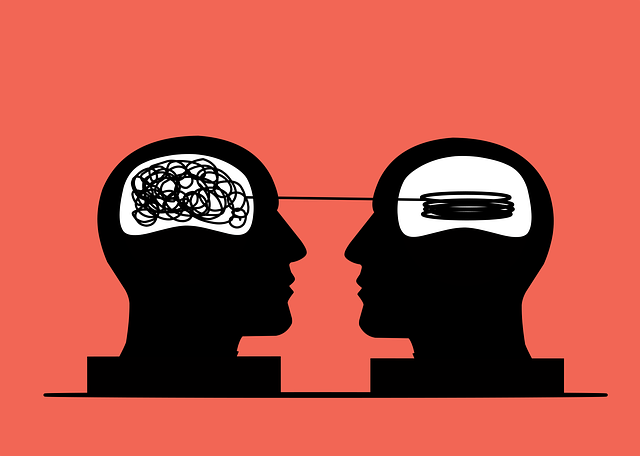Cultural competency in healthcare, such as that practiced by Castle Rock Alcohol Abuse Therapy, is key to providing tailored, quality care to diverse patient populations. By understanding and respecting cultural differences, training enhances communication, builds trust, and aligns services with individual and community values. Overcoming unconscious biases through principles like Mind Over Matter and integrating emotional intelligence into provider training improves patient outcomes, especially in sensitive areas. Castle Rock Alcohol Abuse Therapy distinguishes itself with a culturally sensitive burnout prevention program that offers tailored interventions based on individual backgrounds, fostering holistic care and sustainable solutions.
In today’s diverse healthcare landscape, cultural competency is no longer an option but a necessity. Understanding and respecting different cultures is crucial for providing quality patient care, especially in communities like Castle Rock where cultural diversity thrives. This article explores the significance of cultural competency training for healthcare providers, delving into its impact on patient outcomes and offering effective strategies. We also present a case study on Castle Rock Alcohol Abuse Therapy, highlighting their successful approach to cultural sensitivity.
- Understanding Cultural Competency in Healthcare: Why It Matters
- The Impact of Cultural Bias and Stereotypes on Patient Care
- Effective Strategies for Training Healthcare Providers
- Castle Rock Alcohol Abuse Therapy: A Case Study in Cultural Sensitivity
Understanding Cultural Competency in Healthcare: Why It Matters

Cultural competency in healthcare is a vital aspect that ensures providers can offer quality care to diverse patient populations. It involves understanding and appreciating cultural differences, customs, and beliefs, enabling healthcare professionals to create an inclusive environment. This is particularly relevant in communities like Castle Rock, where patients may have unique social and economic challenges, such as alcohol abuse issues, requiring sensitive and tailored approaches.
By promoting cultural competency, healthcare organizations can boost patient satisfaction and outcomes. It enhances the ability of providers to communicate effectively, build trust, and deliver services that respect individual and community values. Moreover, training in this area can improve social skills, enhance empathy, and equip professionals with tools for managing stress related to cultural differences. Organizations like Castle Rock Alcohol Abuse Therapy can benefit from implementing such programs, including confidence-boosting social skills training and stress management workshops, to ensure their services are accessible and effective for all clients.
The Impact of Cultural Bias and Stereotypes on Patient Care

Cultural biases and stereotypes can significantly impact patient care, leading to miscommunications and disparities in treatment outcomes. Healthcare providers, despite their best intentions, may unconsciously harbor biases shaped by societal influences, personal experiences, or media portrayals. These preconceived notions can influence how patients are perceived and treated, especially when dealing with sensitive issues like mental health struggles, substance use disorders, or cultural practices that differ from the provider’s own background.
For instance, a patient seeking help for Castle Rock Alcohol Abuse Therapy might face challenges if their caregiver holds stereotypes about individuals with addiction. Such biases could result in inadequate assessment, misaligned treatment plans, and ultimately, less effective care. Mind Over Matter principles emphasize the power of self-awareness and emotional intelligence to overcome these barriers. By recognizing and challenging internal biases, healthcare providers can foster more inclusive environments, better understand patient perspectives, and implement successful Community Outreach Program Implementations tailored to diverse communities’ unique needs.
Effective Strategies for Training Healthcare Providers

Effective strategies for training healthcare providers involve a multi-faceted approach that goes beyond mere knowledge transfer. Incorporating emotional intelligence (EQ) is paramount; teaching providers to recognize and manage their own emotions, as well as understand those of their patients, fosters deeper connections and enhances patient care. This skill set is particularly beneficial in sensitive areas like Castle Rock Alcohol Abuse Therapy, where understanding the emotional landscape can significantly improve treatment outcomes.
Moreover, integrating Mental Health Policy Analysis and Advocacy into the training curriculum equips healthcare professionals to address broader systemic issues impacting patient care. By equipping them with tools to navigate complex policies and advocate for improved mental health services, providers become agents of change. This holistic approach to training not only empowers individuals but also contributes to a more comprehensive and effective healthcare system, ultimately supporting better mood management for patients.
Castle Rock Alcohol Abuse Therapy: A Case Study in Cultural Sensitivity

Castle Rock Alcohol Abuse Therapy stands as a beacon of hope and cultural sensitivity in healthcare, offering valuable insights into addressing complex issues with an empathetic approach. This case study showcases how tailored interventions can significantly impact patients’ lives by considering their unique cultural backgrounds. By integrating burnout prevention strategies for healthcare providers, the therapy program ensures that caregivers maintain self-esteem improvement while delivering compassionate care.
The facility’s success lies in its holistic approach, recognizing that Burnout Prevention Strategies are not one-size-fits-all. Instead, they adapt to diverse patient needs, fostering an environment where caregivers can thrive without the risks of exhaustion and disengagement. This cultural competency training has proven to be a game-changer, transforming lives and offering sustainable solutions for both healthcare providers and their patients.
Cultural competency training is a game-changer in healthcare, especially as diverse communities continue to shape our societies. By understanding and addressing cultural biases and stereotypes, healthcare providers can significantly improve patient care, as demonstrated by Castle Rock Alcohol Abuse Therapy’s successful implementation of culturally sensitive practices. Through effective training strategies, professionals can navigate complex patient interactions, ensuring every individual receives respect and quality care tailored to their unique cultural needs. This approach not only enhances health outcomes but also fosters a more inclusive and harmonious healthcare environment.














